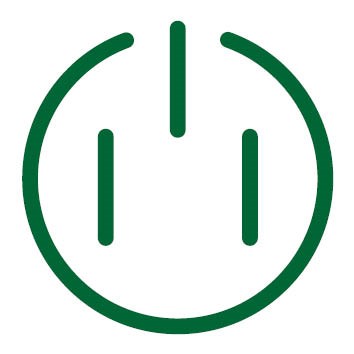Energy: Ireland’s Climate Action Plan 2019 – Waste and the Circular Economy Measures
The Circular Economy is crucial to Ireland meeting the Paris Goals. In previous climate action plan strategies, unfortunately, it has not received the focus it requires. The following elements of Ireland’s Climate Action Plan are, in our view, the most significant measures proposed in terms of waste and the circular economy.
Prevention
Priority areas for prevention planning will be in plastics, food and construction waste:
-
The implementation of the EU single-use plastic ban
-
Working with Member States to design the structure of an EU-wide plastic packaging tax to encourage preventable reduction
Recycling and reuse
-
Increase our plastic recycling from 35% to 55% over the next decade, with a 90% collection target for beverage containers.

-
Implement the EU wide ban by 2030 on non-recyclable plastic
-
Use modulated fees to encourage the use of easy-to-recycle materials
-
Extending segregated collection where it is not now available and promoting better practice
-
Implement the target of 30% replacement of virgin plastic to be recycled
-
Introduce levies on disposables where sustainable alternatives are available
Tackling plastic waste
The Government has:
-
Strongly supported new EU legislation on SUP, which will ban straws, cotton bud sticks made from plastic, plastic plates and cutlery, plastic coffee stirrers and plastic balloon holders
-
Committed to a 90% plastic bottle collection target and a 55% plastic recycling target
-
Commenced a clean oceans initiative to collect, reduce and reuse marine litter and clean up our marine environment
-
Introduced a new law to ban microbeads
-
Will improve the take-up of collection services and explore how every household could have access to a three bin (recyclables, food/organic, and general waste) service
-
We shall undertake research to develop a better system of recording material flows through the elements of the supply chain and on to their final destination, so we can better inform policy and give citizens better confidence and understanding of the flows
Diversion
The achievement of the target of just 10% of waste going to landfill will require:
-
Regulating the materials that go to landfill
-
Improving the mechanical treatment of residual waste to produce fuel which replaces fossil fuel
Circular economy and resource efficiency policy
-
A Circular Economy Policy and Action Plan for Ireland will be developed to replace the current suite of policy, plans and programmes in 2020-21. Inspired by the EU’s Circular Economy Action Plan, Ireland’s response will provide policy direction on waste prevention, eco-design, reuse, repair, recycling, recovery and diverting waste from landfill, and lead a cross-Government reflection on how these principles can be embedded throughout our public policy frameworks
-
Ireland will deliver a major step-up in recycling to meet new EU legislative provisions, including recycling 55/60/65% of municipal waste by 2025/30/35; and recycling 70% of packaging waste by 2030; and specific targets for various packaging materials such as plastic, paper and cardboard, aluminium, and glass
-
Ireland will also create a fund to promote more innovation in reduction, reuse and recycling in the community
Circular bioeconomy
-
The transition to a more circular bioeconomy - where the value of bio-based products, materials and resources is maintained in the economy for as long as possible and the generation of waste minimised could provide an essential contribution to developing a sustainable, low carbon, resource-efficient and competitive economy.
-
Development of the bioeconomy in order to help achieve our carbon mitigation objectives by: reducing our reliance on fossil fuels; decarbonise our society by promoting more sustainable bio-based products; and grow rural and regional businesses and jobs
Conclusion
Ireland plans to transform the current approach to waste in line with modern, circular economy principles. There is scope for major progress in all the key areas of the waste hierarchy including waste prevention, preparing for reuse, recycling and energy recovery.
Ireland will seek to lead the way in reducing single-use plastics, tackling the issue at both national and European level and encouraging an EU wide plastic packaging tax.
For more information on the likely impact of the proposed measures on your business, contact a member of our Energy & Utilities team.
The content of this article is provided for information purposes only and does not constitute legal or other advice.
Share this:


